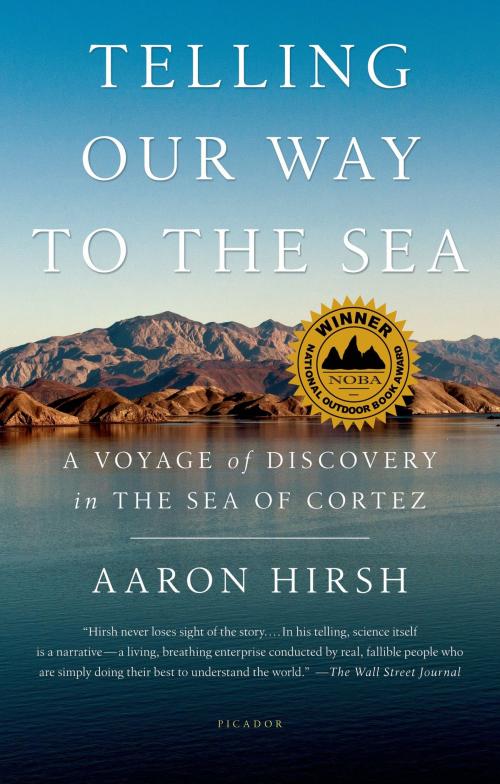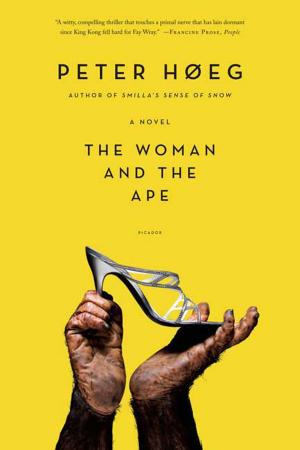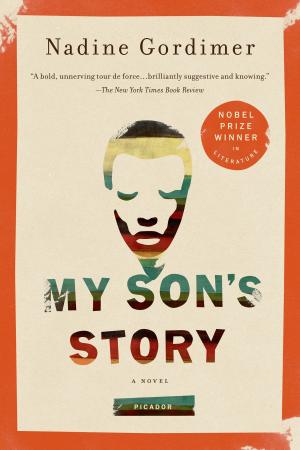Telling Our Way to the Sea
A Voyage of Discovery in the Sea of Cortez
Nonfiction, Science & Nature, Nature, Fish & Ocean Life, Oceans & Seas, Science, Biological Sciences, Environmental Science, Travel, Adventure & Literary Travel| Author: | Aaron Hirsh | ISBN: | 9781429947930 |
| Publisher: | Farrar, Straus and Giroux | Publication: | August 6, 2013 |
| Imprint: | Farrar, Straus and Giroux | Language: | English |
| Author: | Aaron Hirsh |
| ISBN: | 9781429947930 |
| Publisher: | Farrar, Straus and Giroux |
| Publication: | August 6, 2013 |
| Imprint: | Farrar, Straus and Giroux |
| Language: | English |
A luminous and revelatory journey into the science of life and the depths of the human experience
By turns epic and intimate, Telling Our Way to the Sea is both a staggering revelation of unraveling ecosystems and a profound meditation on our changing relationships with nature—and with one another.
When the biologists Aaron Hirsh and Veronica Volny, along with their friend Graham Burnett, a historian of science, lead twelve college students to a remote fishing village on the Sea of Cortez, they come upon a bay of dazzling beauty and richness. But as the group pursues various threads of investigation—ecological and evolutionary studies of the sea, the desert, and their various species of animals and plants; the stories of local villagers; the journals of conquistadors and explorers—they recognize that the bay, spectacular and pristine though it seems, is but a ghost of what it once was. Life in the Sea of Cortez, they realize, has been reshaped by complex human ideas and decisions—the laws and economics of fishing, property, and water; the dreams of developers and the fantasies of tourists seeking the wild; even efforts to retrieve species from the brink of extinction—all of which have caused dramatic upheavals in the ecosystem. It is a painful realization, but the students discover a way forward.
After weathering a hurricane and encountering a rare whale in its wake, they come to see that the bay's best chance of recovery may in fact reside in our own human stories, which can weave a compelling memory of the place. Glimpsing the intricate and ever-shifting web of human connections with the Sea of Cortez, the students comprehend anew their own place in the natural world—suspended between past and future, teetering between abundance and loss. The redemption in their difficult realization is that as they find their places in a profoundly altered environment, they also recognize their roles in the path ahead, and ultimately come to see one another, and themselves, in a new light.
In Telling Our Way to the Sea, Hirsh's voice resounds with compassionate humanity, capturing the complex beauty of both the marine world he explores and the people he explores it with. Vibrantly alive with sensitivity and nuance, Telling Our Way to the Sea transcends its genre to become literature.
A luminous and revelatory journey into the science of life and the depths of the human experience
By turns epic and intimate, Telling Our Way to the Sea is both a staggering revelation of unraveling ecosystems and a profound meditation on our changing relationships with nature—and with one another.
When the biologists Aaron Hirsh and Veronica Volny, along with their friend Graham Burnett, a historian of science, lead twelve college students to a remote fishing village on the Sea of Cortez, they come upon a bay of dazzling beauty and richness. But as the group pursues various threads of investigation—ecological and evolutionary studies of the sea, the desert, and their various species of animals and plants; the stories of local villagers; the journals of conquistadors and explorers—they recognize that the bay, spectacular and pristine though it seems, is but a ghost of what it once was. Life in the Sea of Cortez, they realize, has been reshaped by complex human ideas and decisions—the laws and economics of fishing, property, and water; the dreams of developers and the fantasies of tourists seeking the wild; even efforts to retrieve species from the brink of extinction—all of which have caused dramatic upheavals in the ecosystem. It is a painful realization, but the students discover a way forward.
After weathering a hurricane and encountering a rare whale in its wake, they come to see that the bay's best chance of recovery may in fact reside in our own human stories, which can weave a compelling memory of the place. Glimpsing the intricate and ever-shifting web of human connections with the Sea of Cortez, the students comprehend anew their own place in the natural world—suspended between past and future, teetering between abundance and loss. The redemption in their difficult realization is that as they find their places in a profoundly altered environment, they also recognize their roles in the path ahead, and ultimately come to see one another, and themselves, in a new light.
In Telling Our Way to the Sea, Hirsh's voice resounds with compassionate humanity, capturing the complex beauty of both the marine world he explores and the people he explores it with. Vibrantly alive with sensitivity and nuance, Telling Our Way to the Sea transcends its genre to become literature.















